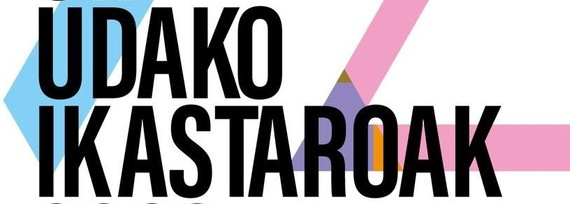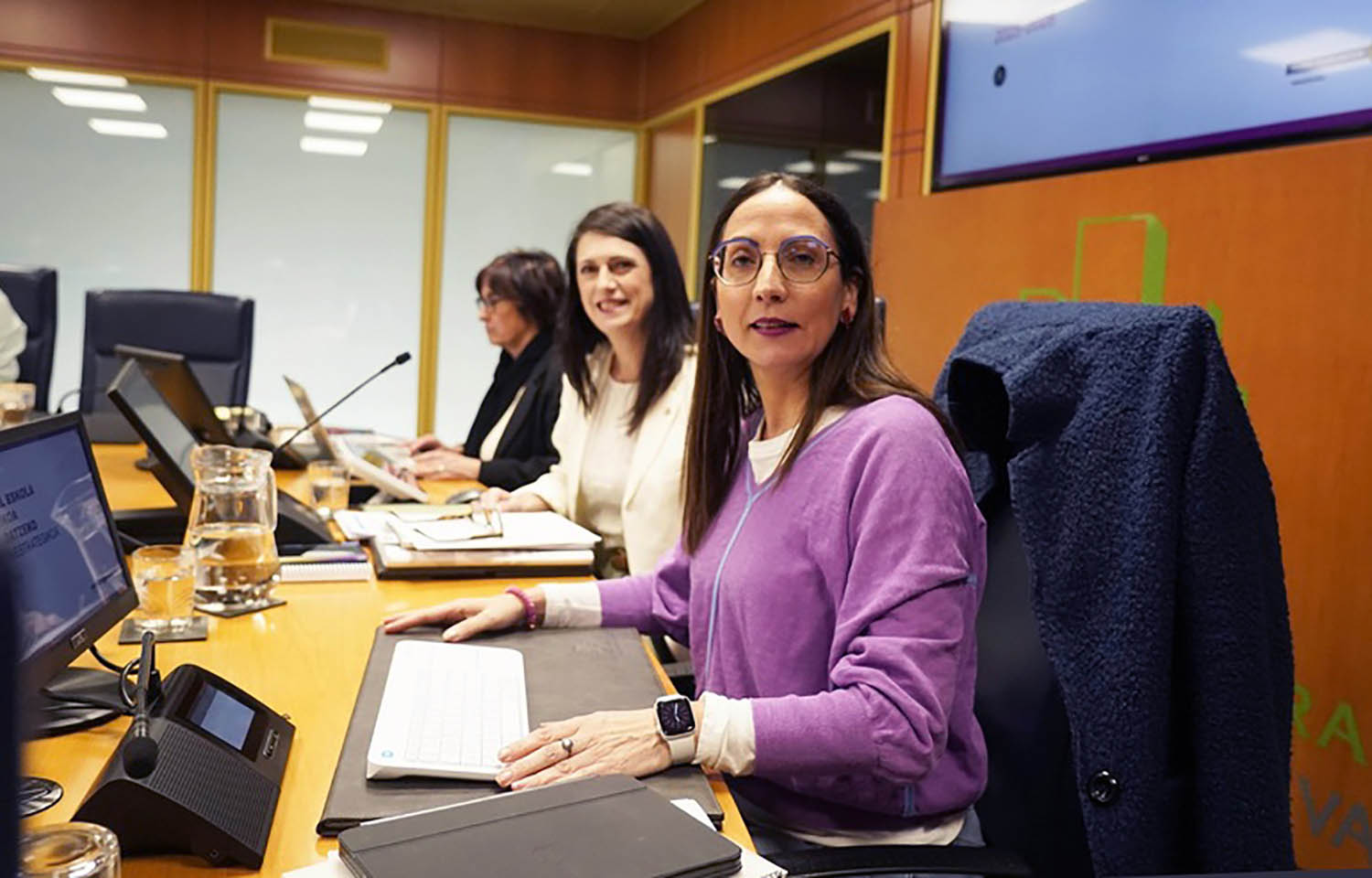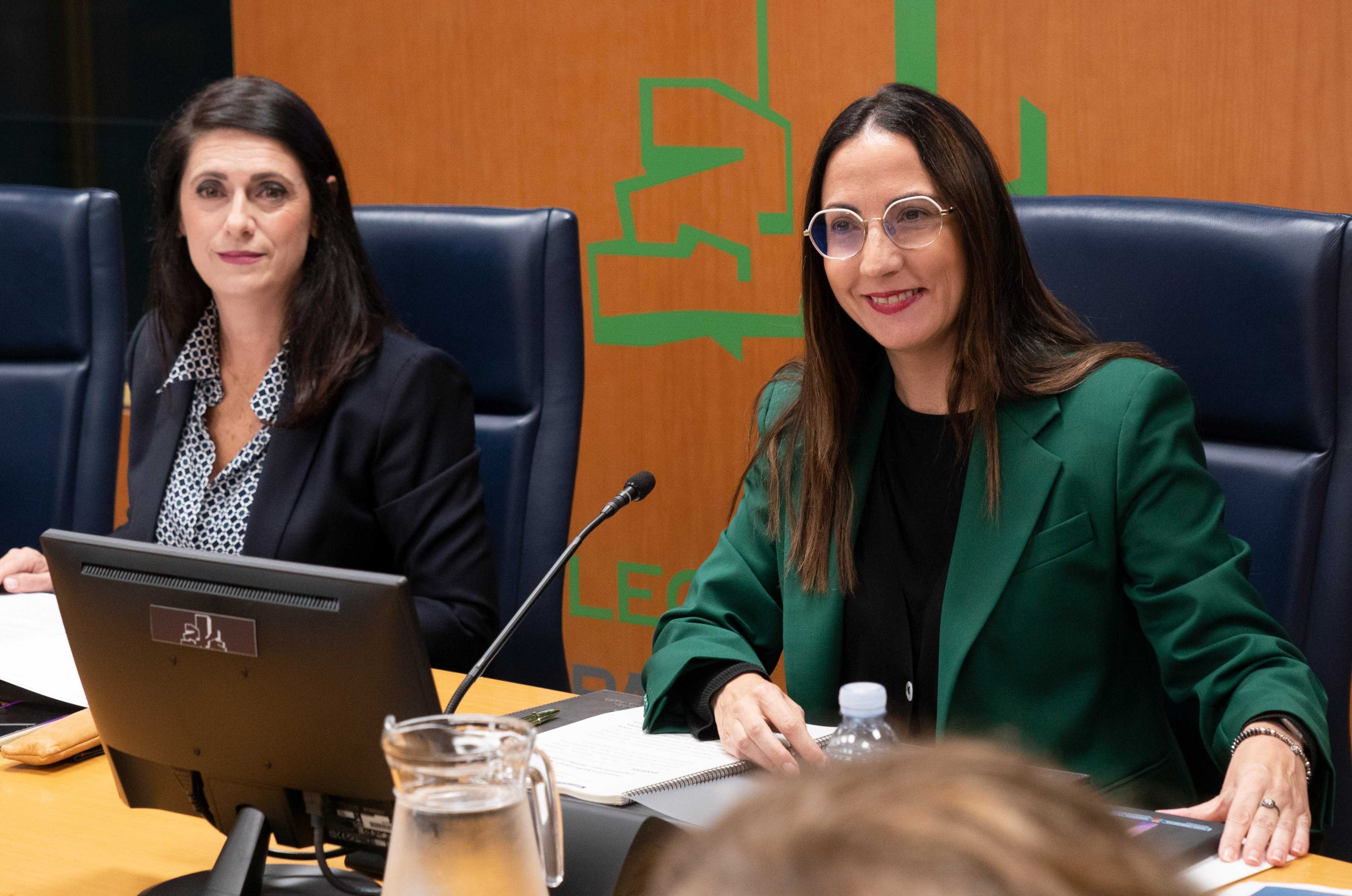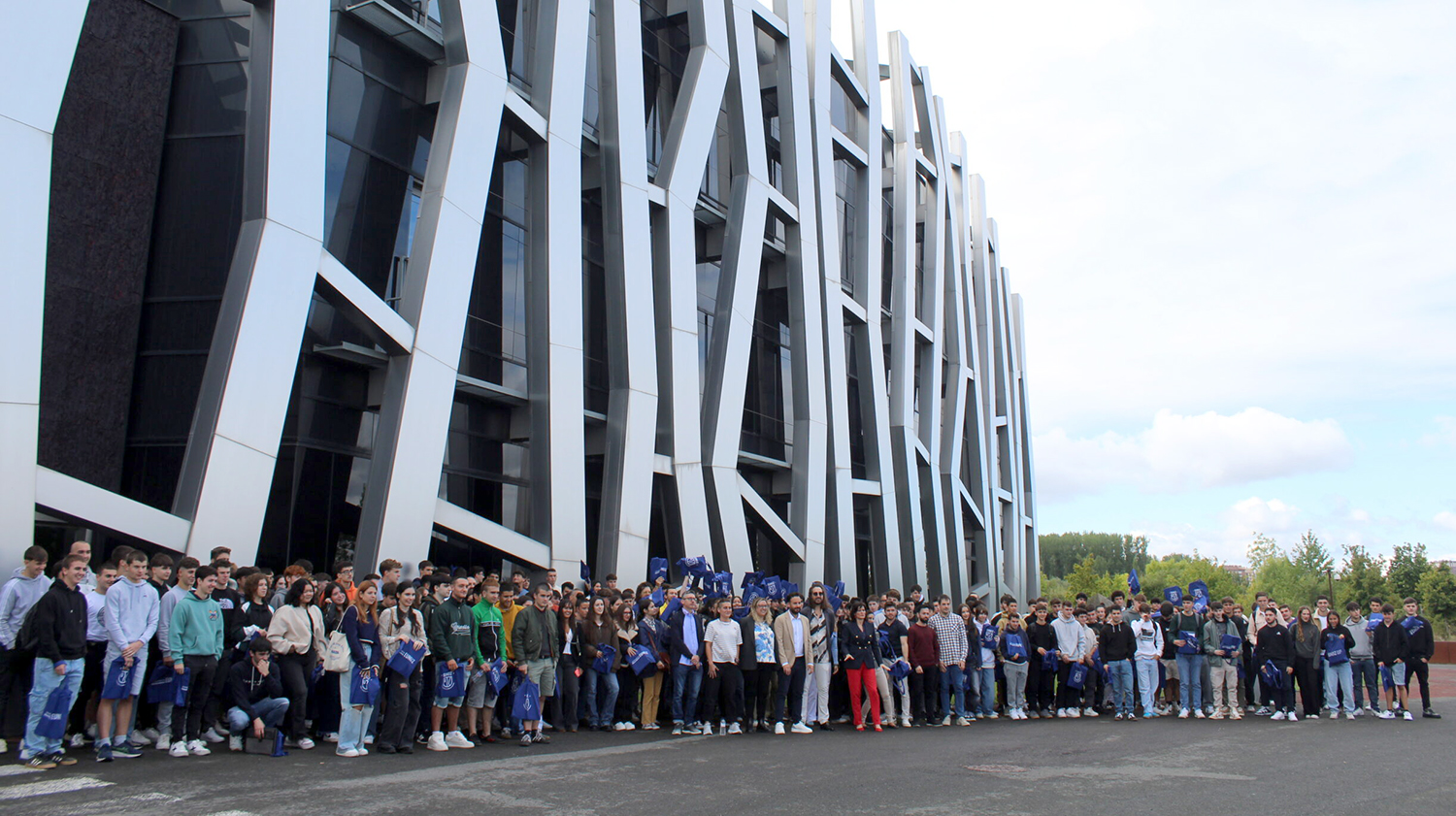"In education, as with canteens and cleaning, the government has committed to privatization as well as digitisation"
- Most of the public and private information shared between students, teachers and parents of educational centers in Euskal Herria is in the hands of US multinationals and is managed through their closed software. Google Drive, Gmail, Hangouts, Meet, Chrome, Classroom, Calendar...For those who want to own it is not a good starting point, but there are people who want to revolutionize this situation. Among them, the Librezale group in Education stands out. Iñigo Gebara is a member of the group and contributed to the new Education Act that took place in the Basque Parliament in December.
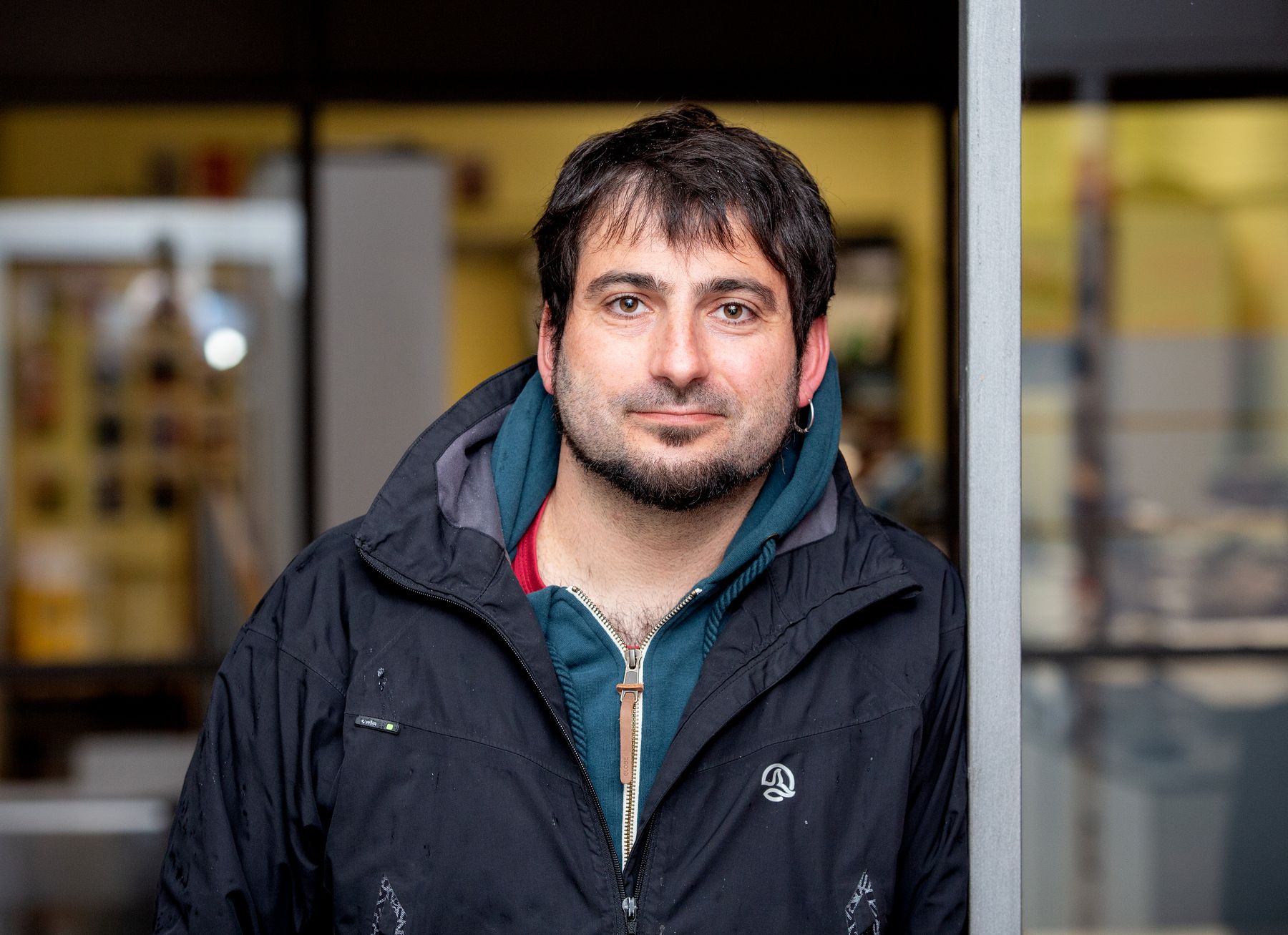
Is the current situation as brute as I have explained?
Yes, very. Microsoft or Google applications are used in almost all public and private centers in Euskal Herria. These companies have been able to enter the “business” of education.
Public education, paid with public money, promotes public property. How have we allowed private businesses to get into this process? As in
many other areas, the last governments have opted for privatization, as they have done with canteens or cleaning. The digitalization process has also acted in the same way. For example, in the case of Microsoft, the government has signed large contracts of a lot of money.
Although outsourcing is widespread in many areas of life, we may not have seen it that way in the informatics infrastructure of education n.Sin hardly counts, the services and programs of
these multinationals have been integrated into our lives. They offer us many “free” tools. We citizens believe that we pay nothing, but the reward is the personal data we give them and the publicity we receive. In everyday life the services of these companies are so widespread that in education we have also assimilated them naturally. If we read that McDonald’s is going to run the school canteens, everyone would be surprised. Even though Google and Microsoft are companies of the same kind, teachers, parents and the entire educational community in general have been devoured. It is a serious problem.

They talk about technological sovereignty to revolutionize the situation. What does that mean in education? These closed
software programs, which cannot know how users work, work with very sensitive data, among which are younger students. Notes, notes, communication with parents… The fog does not exist and these data are on the computers of the American multinationals.
Technological sovereignty means that all of this is managed by ourselves. Only free software guarantees you transparency – knowing how the program works or what it does with our data. Furthermore, rather than leaving our data in the hands of private companies, we prefer to put education on the servers controlled by the community or those of the Basque Government.
“Free software, Linux, unknown tools, you have to put everything upside down… that’s a great move,” you’ll have heard on several occasions.
Yes, many times. There are sufficient reasons to say that this argument is not true. It has been shown in many projects that are being carried out in schools. In my school everything is done with Linux and there is no problem. You don't need to be an expert on these kinds of tools. We adapt to the changes and the students do it even faster. Free platforms are as useful as multinationals and offer more possibilities.
Public money, public code?
I think that should be the case. Public money is invested in applications that should be open to all citizens.
Digitalization has become a magic word. Now everything has to be digital. They said in Parliament that the process of digitisation in education is very rapid and has not been planned.
We take five points as a starting point for effective, Euskaldun and comprehensive digitalisation. When digitization is proposed from the top spheres, they always do so as a novelty, as the tool only benefits from digitalisation. That is clearly not the case. There are studies about the problems it means for young people and not so young to be many hours in front of screens. Doing everything digitally takes away the ability to work some basic competencies. The bosses of Non and Silicon Valley have also seen it, and they take their kids to non-digitized classes. Digitization offers some possibilities, but here has been poor digitization without planning. They seem to want to digitize more and more in the new education agreement. This is a serious mistake. We should look at how much education needs to be digitized. Do two-year-olds need a tablet at school? It is detrimental than beneficial.
In addition, we are concerned about how money is spent on the new material. Now that European funds have come, I do not know how many millions are going to spend on buying new computers with a life of three years. It's not a sustainable model. In the ikastola of San Juan de Luz they have made a nice experience, rehabilitated the old computers and put them into operation with the Txiki Linux system.
Have you taken any of your contributions into account?We have
taken it surprisingly that some of our contributions have been taken into account in the new law, but it is not enough. They're collected in a very diffuse way. They leave the door open to do one thing or the other.
The debate is gradually spreading, but it is also becoming more and more difficult. Chromebooks are coming to schools and there you can't install anything. They're completely closed. The government tells you that you have to use Microsoft or Google, it doesn't give you more options. Therefore, we must be doing “cheats” in order to be able to use free platforms in some way.
From the point of view of resources, what would we need to channel change?
There is a huge gap in human resources. There is no specific training. In addition to the person who decides what type of digitization is needed in each school, the technical part needs to be analyzed and implanted. Today, this is done by just one person, and it can be any physical education teacher, music or one who has touched him, because he just likes to walk a little bit with computers.
In many cases, it's those people who've driven Google. Why? Because it's the simplest thing or because it's been the easiest choice you've ever had. Because the government or the Berritzegune have offered training on Google or Microsoft products, for example. The teacher is not to blame.
You have to be very empowered to get out of this closed model.
Yes, very well informed. It is not a subject that is in the middle of the street. This is one of the biggest obstacles. Empowering people is one of our goals.

In any other type of public project there are tenders, projects are presented and selected on the basis of criteria. On this issue, it seems like no, that Microsoft and Google doors have come in front of each other.
“Made the law, made the trap,” they say in Spanish. There have been no more options on the table.
The choice is therefore eminently political.
Yes, clearly.
If you're talking about practices that are very different from the model here. For example, in 2019 Germany banned the use of Google, Apple and Microsoft platforms in schools or what is being done recently in Barcelona. Can you explain the latter? A
group of Barcelona parents concerned about the inevitable use of Google by their children in school joined and contacted the Xnet association. The Government of Catalonia decided to continue working with Google, so they finally hit the door of the Barcelona City Hall and got funding to create a platform based on free software, adapted to their needs and installed on secure servers. With this software a pilot program has been carried out in five schools in Barcelona. Due to the good experience, next year they intend to extend to other schools, for which more financial disbursement is planned.

The City Council has allocated 140,000 euros to replace Google in school. It looks silly.
The Government pays a great deal more on licences every year. This makes it clear that money is not a problem. The problem is the lack of political will, ignorance, the interests of some…
This Barcelona platform is made, free and available to all.
The Barcelona project has also explained to us the concept of food sovereignty: 0 kilometres. All the
computer development of the platform has been carried out by companies in Barcelona. In Euskal Herria we also have many companies that work with free software, which are experts in these issues. These types of projects promote the local economy: the use of environmental agents, cooperatives or companies to meet our needs. In this respect, everything is a benefit.
So what to do in Euskal Herria? What are the steps to implement these types of projects?
We have to act up and down. On all tracks. Education affects the law, conveys the message to us in society, informs us, makes us see what the problem we have in education… More and more fathers and mothers come to the group. If parents want to achieve something, they have to do strength, because change comes from there. Anyone concerned can contact us via the open channel Librezale Telegram in Education or hezkuntza@librezale.eus.
We have had to endure another attack on our language by the Department of Education of the Government of Navarre; we have been forced to make an anti-Basque change in the PAI program. In recent years, by law, new Model D schools have had to introduce the PAI program and have had... [+]
Public education teachers have the need and the right to update and improve the work agreement that has not been renewed in fifteen years. For this, we should be immersed in a real negotiation, but the reality is deplorable. In a negotiation, the agreement of all parties must be... [+]
Lehengai anitzekin papera egitea dute urteroko erronka Tolosako Lanbide Heziketako Paper Eskolako ikasleek: platano azalekin, orburuekin, lastoarekin, iratzearekin nahiz bakero zaharrekin egin dituzte probak azken urteotan. Aurtengoan, pilota eskoletan kiloka pilatzen den... [+]
Garai kuriosoak bizi ditugu eta bizi gaituzte, zinez. Hezkuntza krisian dela dioten garaiak dira eta, gutxien-gutxienean, aliritzira, ba aizue, 2.361 urte ditu gaurgero boladatxoak.
Ez zen ba debalde joan Aristoteles bere maisu maite Platonen akademiatik lizeo bat muntatzeko... [+]
















